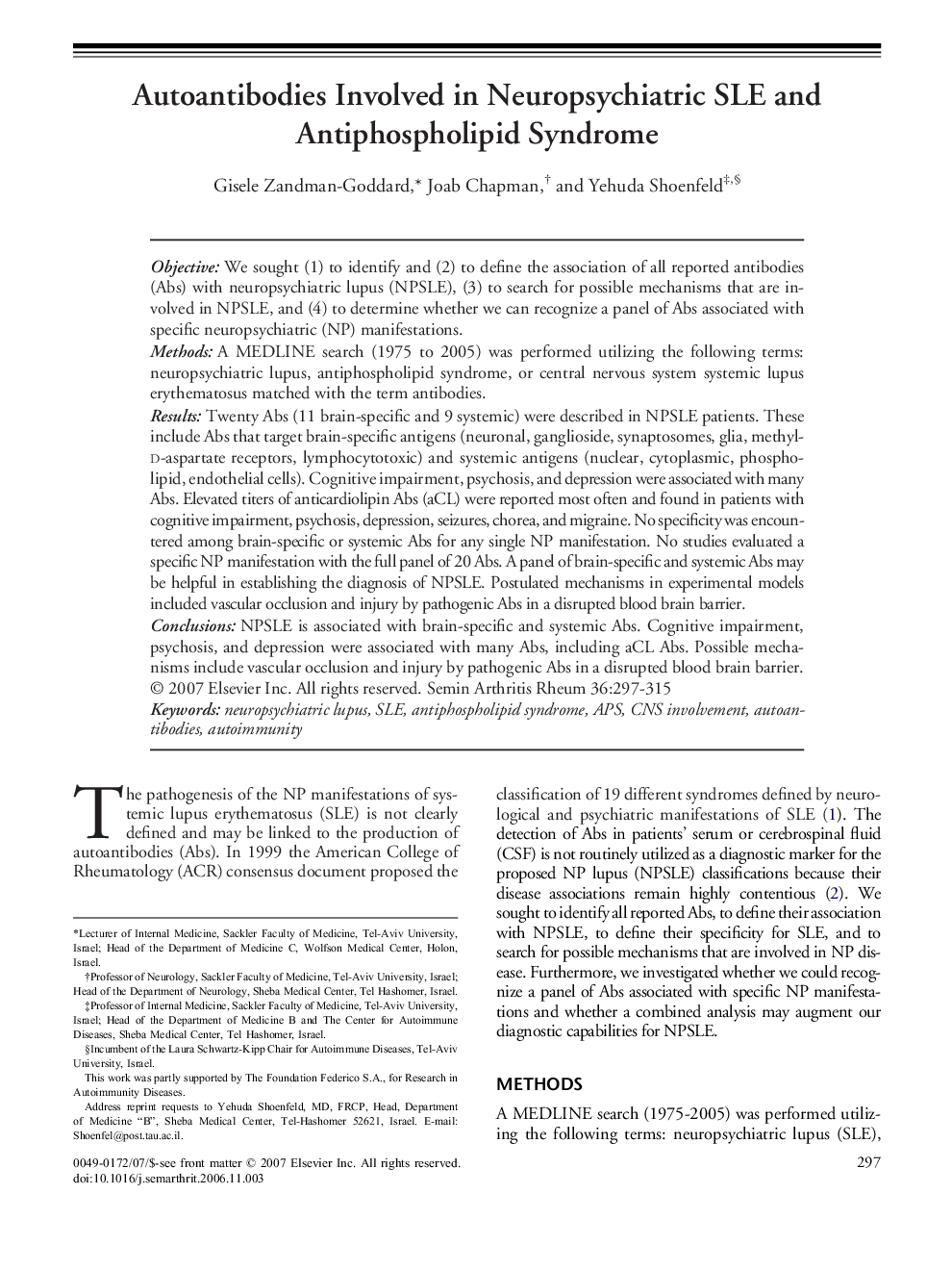| Article ID | Journal | Published Year | Pages | File Type |
|---|---|---|---|---|
| 2771993 | Seminars in Arthritis and Rheumatism | 2007 | 19 Pages |
ObjectiveWe sought (1) to identify and (2) to define the association of all reported antibodies (Abs) with neuropsychiatric lupus (NPSLE), (3) to search for possible mechanisms that are involved in NPSLE, and (4) to determine whether we can recognize a panel of Abs associated with specific neuropsychiatric (NP) manifestations.MethodsA MEDLINE search (1975 to 2005) was performed utilizing the following terms: neuropsychiatric lupus, antiphospholipid syndrome, or central nervous system systemic lupus erythematosus matched with the term antibodies.ResultsTwenty Abs (11 brain-specific and 9 systemic) were described in NPSLE patients. These include Abs that target brain-specific antigens (neuronal, ganglioside, synaptosomes, glia, methyl-d-aspartate receptors, lymphocytotoxic) and systemic antigens (nuclear, cytoplasmic, phospholipid, endothelial cells). Cognitive impairment, psychosis, and depression were associated with many Abs. Elevated titers of anticardiolipin Abs (aCL) were reported most often and found in patients with cognitive impairment, psychosis, depression, seizures, chorea, and migraine. No specificity was encountered among brain-specific or systemic Abs for any single NP manifestation. No studies evaluated a specific NP manifestation with the full panel of 20 Abs. A panel of brain-specific and systemic Abs may be helpful in establishing the diagnosis of NPSLE. Postulated mechanisms in experimental models included vascular occlusion and injury by pathogenic Abs in a disrupted blood brain barrier.ConclusionsNPSLE is associated with brain-specific and systemic Abs. Cognitive impairment, psychosis, and depression were associated with many Abs, including aCL Abs. Possible mechanisms include vascular occlusion and injury by pathogenic Abs in a disrupted blood brain barrier.
